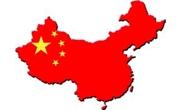Government/Policy

March 22, 2018
On the Heels of 232, Trump Announces More Tariffs on China
Written by Tim Triplett
President Trump signed a memorandum Thursday directing the U.S. Trade Representative to recommend tariffs on $50 billion to $60 billion of Chinese goods. In addition to the tariffs, the United States also plans to restrict Chinese invesment in the U.S. and to take action against China at the World Trade Organization, according to press reports.
Even before the dust had a chance to settle over Trump’s announcement that seven other countries will join Canada and Mexico on the list of those exempt from the Section 232 steel tariffs, the administration revealed plans for action under Section 301 of the U.S. Trade Act of 1974, which gives the president wide latitude to retaliate against any act or practice of a foreign government that violates international fair trade standards. The U.S. government has long contended that the Chinese are guilty of currency manipulation and theft of intellectual property, as well as the subsidizing and dumping of goods, such as steel and aluminum, on the world market.
The president directed the USTR to publish a list within 15 days of the Chinese products he recommends be subject to new tariffs, which would kick in following a 60-day consultation period. Treasury Secretary Steven Mnuchin also has 60 days to propose restrictions on Chinese investment in sensitive U.S technology.
Chinese officials were quick to issue a statement condemning the move by the U.S.: “China does not want a trade war with anyone. But China is not afraid of and will not recoil from a trade war. If a trade war were initiated by the U.S., China would fight to the end to defend its own legitimate interests with all necessary measures.”
Fears of a trade war on Wall Street caused the Dow Jones to plunge by 700 points on Thursday. The move by the Trump administration is widely opposed by U.S. business and consumer groups.







